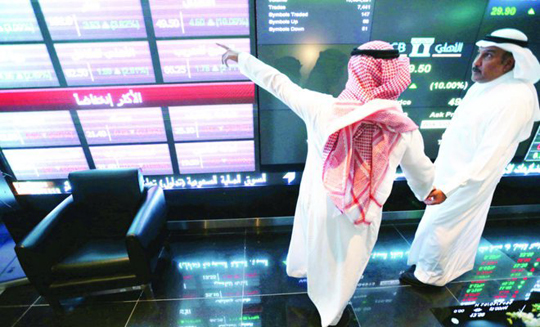Dubai, Jun 8: The Tadawul All Share Index (TASI) rose 0.2 percent on Wednesday in the heaviest trading volume this year as 87 shares rose and 63 declined.

Buying of Saudi stocks favored by foreign funds, in anticipation of a decision by MSCI on June 20 to begin reviewing Riyadh for possible inclusion in its emerging market index, has buoyed the market in recent days.
Dairy producer Almarai rose 0.6 percent and its largest shareholder Savola Group added 0.7 percent, to its highest close in 17 months.
In Dubai, the largest listed real estate developer Emaar Properties surged 8.6 percent in its heaviest trade since April 2015 after it said it planned to offer up to 30 percent of its UAE real estate development business in an initial public offer (IPO). Subject to market conditions, funds raised through the IPO would be distributed to shareholders of Emaar.
The company said the IPO would be Dubai's largest since its flotation of Emaar Malls, which raised 5.8 billion dirhams ($1.58 billion) in 2014 and was heavily oversubscribed. Emaar Malls was up 1.6 percent.
The Dubai index climbed 2.5 percent, its largest single-day gain since December 2016.
In Abu Dhabi, Dana Gas rocketed 10.9 percent in very heavy trade after saying it had received $40 million from the Egyptian government towards its outstanding receivables; its current receivables balance in Egypt now stands at $187 million.
The Abu Dhabi index, however, fell 0.1 percent, weighed down by a 1.4 percent decline in shares of the largest listed bank, First Abu Dhabi Bank.
In Cairo, the index edged up 0.1 percent in its 12th consecutive session of gains to a fresh all-time high.
Ezz Steel soared 7.5 percent after the trade ministry imposed a temporary import tariff on rebar steel from China, Turkey and Ukraine to protect local manufacturers suffering from losses. The decision is valid for fourth months.
Qatar's stock market fell for a third straight day on Wednesday, hit by the breaking of diplomatic ties with its neighbors, though the pace of the drop slowed. The Qatari index lost 1 percent to a fresh 17-month low, taking its losses to 9.7 percent.






Comments
Add new comment